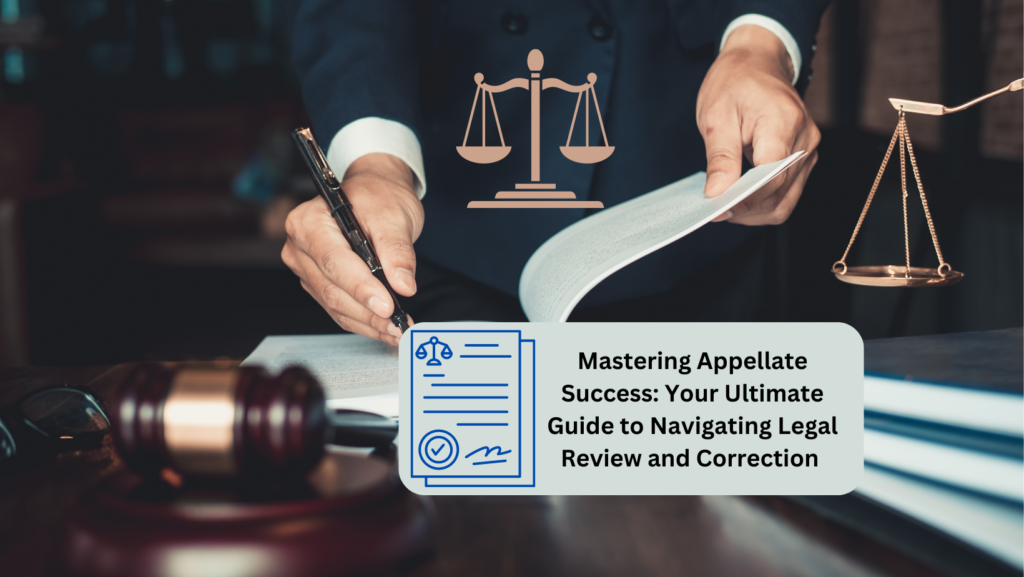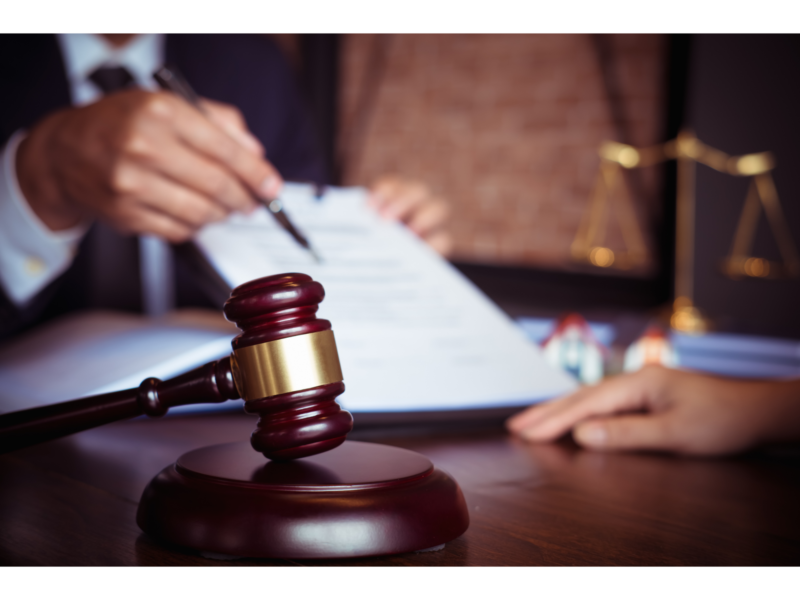Introduction
Appellate procedure is a critical aspect of the legal system that allows parties dissatisfied with trial court decisions to seek review and potential correction. Navigating the appellate process requires a deep understanding of rules, strategies, and techniques unique to this stage of litigation. This article provides a comprehensive guide to successfully navigating appellate procedure. Appellate procedure serves as a crucial mechanism for correcting errors, ensuring fairness, and upholding the rule of law in the legal system. Successfully navigating this complex process requires a deep understanding of the rules, strategies, and tactics unique to appellate advocacy.

Understanding the Appellate System
- Differentiating Appellate Courts: Appellate courts review decisions from trial courts to determine if legal errors occurred. Understand the hierarchy of appellate courts in your jurisdiction.
- Appellate Standard of Review: Know the applicable standard of review, which outlines how much deference the appellate court gives to the trial court’s decisions.
Grounds for Appeal
- Legal Errors: Identifying legal errors made during the trial is a primary ground for appeal. These errors could include evidentiary mistakes, improper jury instructions, or misapplication of law.
- Abuse of Discretion: Appellate courts review whether the trial judge’s decisions were reasonable or if they abused their discretion.
- Constitutional Violations: If a constitutional right was violated during the trial, it may serve as grounds for appeal.
Initiating the Appellate Process
- Filing a Notice of Appeal: This document formally initiates the appellate process and notifies all parties involved that an appeal will occur.
- Timing and Deadlines: Strict adherence to filing deadlines is crucial. Failure to meet deadlines can result in forfeiture of the right to appeal.
Filing an Appellate Brief
- Crafting the Brief: The appellant’s opening brief and the appellee’s response brief are central to presenting legal arguments and analyzing issues. Use clear, persuasive language.
- Structure and Content: Follow appellate rules for formatting and content. Each argument should be well-organized, supported by legal authority and factual evidence.
Oral Argument
- Preparing for Oral Argument: Use oral argument as an opportunity to clarify complex issues and answer judges’ questions. Practice concise, effective communication.
- Strengthening Your Position: Use oral argument to emphasize key points and counter opposing arguments.
Responding to Appeals
- Analyzing the Appellant’s Argument: Craft a compelling response brief that addresses each point raised by the appellant. Dispute legal errors and present counterarguments.
- Preserving the Trial Record: To effectively respond to an appeal, ensure that the trial record accurately reflects the issues being raised.
Appellate Decision and Beyond
- Receiving the Decision: The appellate court’s decision could affirm, reverse, remand, or modify the trial court’s ruling.
- Options After Appellate Decision: Depending on the outcome, parties may consider seeking further review by a higher court or complying with the appellate decision.
Strategizing for Success
- Identifying Strong Legal Arguments: Focus on compelling legal arguments that align with case law and statutes.
- Highlighting Key Facts: Emphasize factual circumstances that support your legal position.
Leveraging Precedent
- Citing Precedent: Use relevant case law to strengthen your arguments and demonstrate legal precedent.
- Distinguishing Precedent: Address unfavorable precedent by distinguishing the differences in your case.
Addressing Appellate Ethics
- Candid Advocacy: Ethical advocacy involves presenting arguments truthfully and without misleading the court.
- Duty of Candor: Disclose legal authority contrary to your position and ensure accurate citations.
Alternative Dispute Resolution in Appellate Cases
- Mediation and Settlement: Explore alternatives to full appellate proceedings, such as mediation, to achieve resolution.
- Settlement Agreements: Consider the potential impact of settlement agreements on the appeal process.
Navigating Jurisdictional Complexities
- Subject Matter Jurisdiction: Ensure the appellate court has jurisdiction over the subject matter of the appeal.
- Personal Jurisdiction: Address any jurisdictional challenges that could impact the appeal.
Preparing for Multiple Outcomes
- Plan for Different Scenarios: Anticipate potential outcomes and strategize accordingly.
- Adapting to Decisions: If the decision is unfavorable, evaluate the next steps for your client, considering potential remedies or appeals.
Conclusion
Navigating appellate procedure requires a combination of legal acumen, strategic thinking, and adherence to procedural rules. By mastering the strategies outlined in this guide, legal professionals can effectively advocate for their clients and achieve favorable outcomes in appellate court.
FAQs
- How is appellate procedure different from trial procedure? Appellate procedure focuses on reviewing legal errors and applying the law to decisions made in trial court, rather than re-litigating facts.
- Can new evidence be introduced during the appellate process? Generally, appellate courts only consider evidence presented during the trial court proceedings.
- Is oral argument mandatory in appellate cases? In many jurisdictions, oral argument is optional but recommended to clarify issues and answer judges’ questions.
- What if the appellate court affirms the trial court’s decision? If the decision is affirmed, the original ruling remains in place.
- How can understanding appellate procedure benefit my legal career? Proficiency in appellate procedure enhances advocacy skills, prepares you for higher-level litigation, and offers opportunities for specialization.

